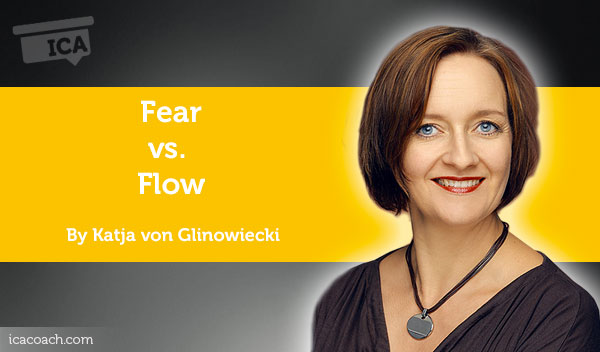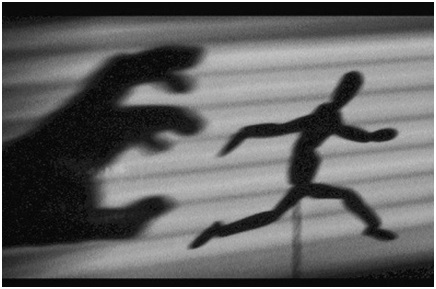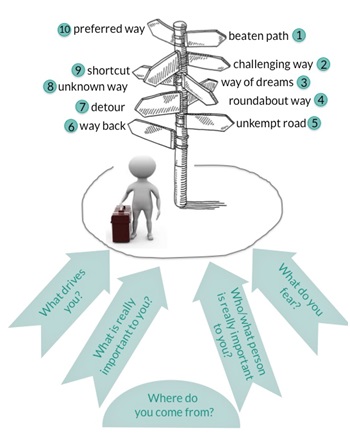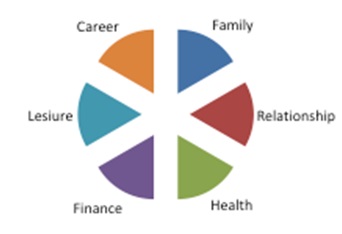
A Coaching Power Tool Created by Katja von Glinowiecki
(Diversity Coach, CHINA)

Life is either a daring adventure or nothing, Helen Keller
As my coaching model centers around life-altering changes, and as I am working with clients in cross-cultural coaching in particular, it seemed obvious that my power-tool – would be concerned with the most essential topic common to moving, to living and working abroad, as well as to the situations my clients have to face – that is: adventurousness!
Regarding relocation, there is no good or bad, no black or white and no perfect preparation, although the process might feel terrifying or trying at times. Relocation and how you experience it is about yourself, your awareness of both, cultural differences and the changes in your daily life as well as your work environment and relationships.
But it is also a matter of outlook. Think of relocation as an adventure. The dictionary describes an adventure as “an exciting or unusual experience. It may also be a bold, usually risky undertaking, with an uncertain outcome.”
Moving forward bearing this definition in mind would mean to look at the bright side of the situation. Drop the concerns and fears – no adventure without uncertainty, so there is nothing wrong with this. This way you free yourself from what seems to be a burden and stagnation to be able to achieve lightness and a flow in a positive direction.

Becoming fearless isn’t the point. That’s impossible. It’s learning how to control your fear, and how to be free from it. Veronica Roth
The emotion of fear is described as a feeling of anxiety concerning the outcome of something, or maybe the safety of someone. It is a mixed feeling of dread and reverence; we feel that something unwelcome or bad is likely to happen. Overall, fear can absorb, and thus limit, your thoughts, beliefs and actions. You might feel the significance of fear as a heavy energy that drags you down, like a burden on your shoulders. (ICA module: lightness vs. significance)
Fear in human beings may occur in response to a specific stimulus occurring in the present, or in anticipation or expectation of a future threat perceived as a risk to body or life.

I’m rooted, but I flow. Virginia Woolf
Flow as a term used in positive psychology, also known as “the zone,” describes the mental state in which a person performing an activity is fully immersed in a feeling of energized focus. He, she or they are fully involved, and this results in enjoying the process of the activity. In essence, flow is characterized by a complete immersion in what one does. The expression to go with the flow therefore describes a state of mind in which a person is relaxed and accepts a situation, rather than trying to alter or control it.
Case study
The shift from fear to flow through a coaching application is illustrated by Sabine’s story:
Sabine is an independent and life-loving mother of 2 teenage girls. She works full-time as primary teacher. When her husband received an offer for an expatriate assignment, and to move from Germany to China for the duration of 3 years, the whole family went on a look & see trip to Beijing. Sabine was all excited about the chance to relocate, explore the world and take off to a have her own family adventure. She quit her job and felt ready to become a spouse & housewife.
Now, after 6 months living abroad, Sabine feels unable to get her feet on the ground. Her daughters are well integrated in school and her husband is working long hours in order to fulfill his engagement. Only Sabine is unable to explore her new environment, build a new network and find a new fulfillment. Even staying in touch with her friends in Germany is difficult, as Sabine can’t stand the curious questions from home. She starts to retreat into hers shell.
Through the coaching process she was able to identify her values and strengths as well as her life purpose. She realized that she felt jealous of her daughters and her husband adjusting so smoothly, and that she missed her job and the daily routine in Germany far more than she could have imagined before. Coaching helped her to recognize that she needed to focus on her strengths in order to get back her independence and her joy in life. These insights gave her an idea that she would search for a new occupation and a different purpose in her present life beyond the family and household.
She realized that she needed to take action. This was not a situation that she could put up with any longer. But she was very afraid – of many things. Of disappointing her friends and family, learning a new language (Chinese to get her through her daily life), getting in contact with the expat community (her lack of English), finding a job or an occupation where language skills weren’t that important, being out of her job in Germany for more than 3 years, and so on….
During her coaching sessions she created a clear description of how she wanted her life to look like in 6 months’ time and possibly after 3 years when the family would move back to Germany. She was able to see clearly what she wanted and this clarity allowed her to feel motivated and excited about making changes in her life. The fear melted away.
Sabine was able to plan the first steps and came up with her own strategies to formulate and organize her next steps and milestones.
She has now started to learn Chinese in a language school, where she met many other spouses from around the world. She made new friends, explores the city with them and volunteers at an orphanage for girls. Without anxiety she’s able to communicate with the people around her even with only basic language skills in Chinese and English. She reached the state of going with the flow and enjoys the different aspects of her life as an expat spouse. For her future career, Sabine started to study in the well-known TaijiZEN center in Beijing to become an instructor. Her goal is to combine her teaching with Taiji methods to improve the learning and concentration of her students in primary school classes – after her years in China, back in Germany.
Coaching Application
We can support our clients by helping them to reframe their perspective and to focus on going with the flow away, rather than fear. This can be achieved by, firstly, asking the right, powerful questions in order to raise their awareness, secondly, by exploring their values and life’s purpose, or by, thirdly, sharing feedback on observed behaviors that may be reinforcing the feelings of fear. Helping the client to develop some positive strategies they can implement in their every-day life will help them to move forward.
Several exercises and coaching models can support the client in finding – or redefining – their purpose in life, their way and strategies to move forward or how to explore and focus on their values and/or beliefs in order to overcome emotional fear – and, ultimately, how to indulge in an energizing flow!
-
Personal Signpost
We all stand sometimes at important cross-ways in our lives, where we have to ask ourselves: Where to now? The signpost model can help to find the right direction and, more importantly, it shows us how many interesting options we have.
(coaching model the personal signpost)

-
Wheel of Life
The “Wheel of Life” exercise is the most famous coaching tool used today and will help the clients to look at all areas of their life and consider each of them in turn. This allows them to see what is off balance. This exercise will also help to identify goals.
This powerful tool provides a visual representation of the way the clients view their lives now, and ideally what it will look like in the future.
(wheel of life a self assessment tool)
Example

-
Can ‘The Future You’ help you?
People who achieve their goals have more than just their desired outcome; they have found new personal skills and strengths. They have experiences that they can use to overcome future problems and also to motivate themselves.
Client Exercise:
Questions for Re-flexion
- What do you want to specifically focus on right now, which would make the biggest positive difference to your life?
- What is important to you about your situation and why do you care?
- Stop and take a breath. What are you feeling right now?
- What do you really, really want?
- What about this situation is under your control?
- What about this situation is out of your control?
- What can you do about the part of the situation you can change?
- What about the part of the situation you can’t change?
- For your life to be perfect, what would have to change?
- What do you want more of in your life? – make a list
- What do you want less of in your life? – make a list
- What would help you to feel ready to move forward?
Sources
goodreads.com
dictionary.com
oxforddictionaries.com
Wikipedia.com
ICA learnsite